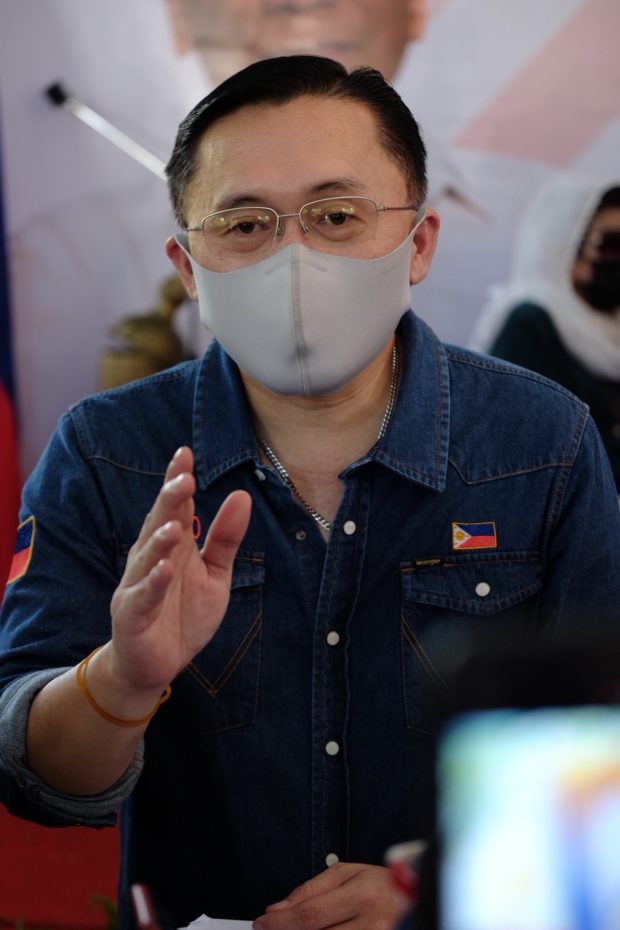Bong Go willing to undergo drug test: Voters need to know bets are ‘fit for public service’

Senator Bong Go. FILE PHOTO
MANILA, Philippines — Vice presidential aspirant Sen. Bong Go on Saturday expressed willingness to undergo a drug test voluntarily.
“Kung ako ang tatanungin at kung ‘yan ang gusto ng taumbayan — anytime, anywhere ay willing naman ako magpa-drug test,” Go said in a statement.
(If I were to ask and that’s what the people want—anytime, anywhere, I am willing to undergo drug test.)
Go, who currently serves as the vice chair of the Senate Committee on Public Order and Dangerous Drugs, added: “Bagama’t hindi naman requirement sa batas ang drug testing ng mga kandidato, sang-ayon ako na voluntarily maipakita natin at malaman ng mga botante kung ‘fit for public service’ ang mga pinagpipilian nilang mamuno ng ating bansa,” he continued.
(While it is not a requirement that candidates should undergo drug testing, I agree that we should volunteer to determine if the candidates who will serve the country are “fit for public service.”)
Article continues after this advertisementIt was senatorial aspirant and veteran radio host Raffy Tulfo who said that he intends to propose to the Commission on Elections the drug testing of candidates using hair follicles instead of urine, the drug testing method he favors in his radio program.
Article continues after this advertisementTulfo said such a method could detect drug use for 90 days, compared to urine’s validity, which is limited to a few days.
Go’s fellow vice presidential candidates Sen. Vicente Sotto, Francis “Kiko” Pangilinan, Rep. Lito Atienza and Doc Willie Ong also expressed willingness to undergo such test.
Meanwhile, Go also said that the fight against drugs should have a more balanced and holistic approach, pointing out that he filed Senate Bill No. 399 in 2019 to establish a Drug Abuse Treatment and Rehabilitation Center.
“In addition to the fight for the nation’s safety and security against the menace of illegal drugs, we must also direct attention towards the recovery of its many victims,” Go said. “Drug dependents should be treated as victims in need of medical, psychological, and spiritual help.”